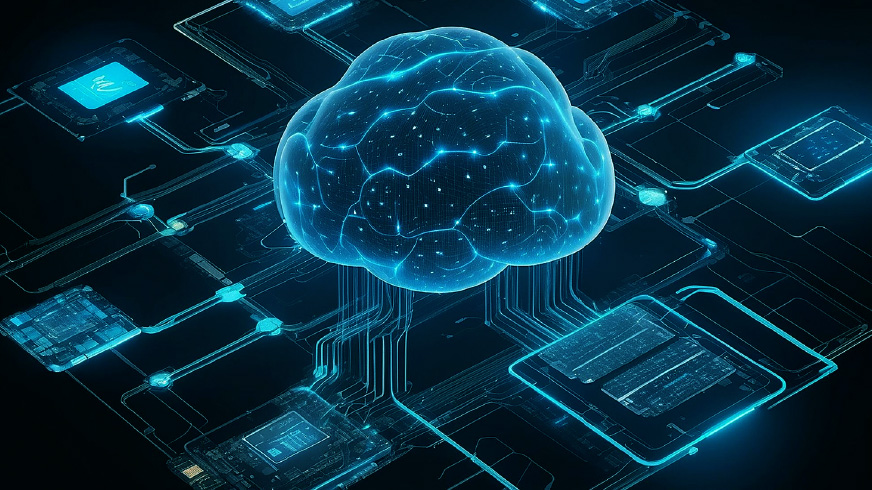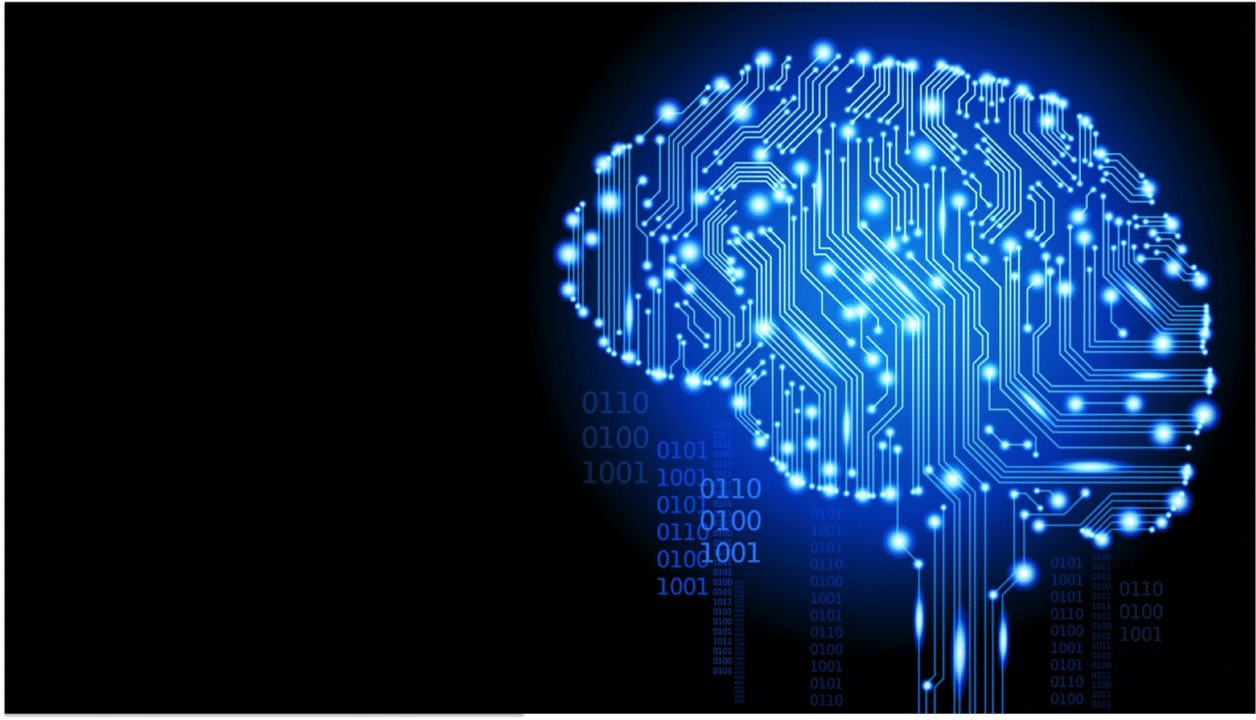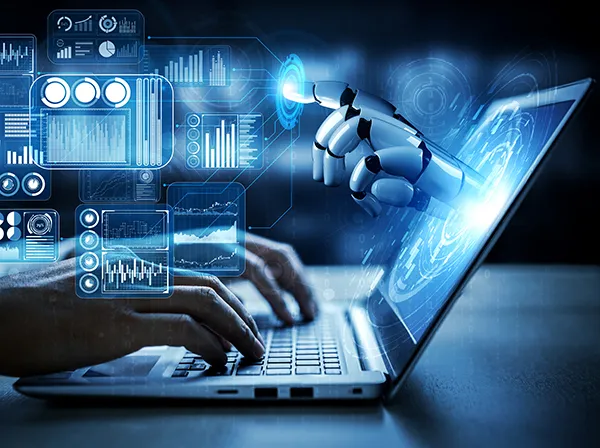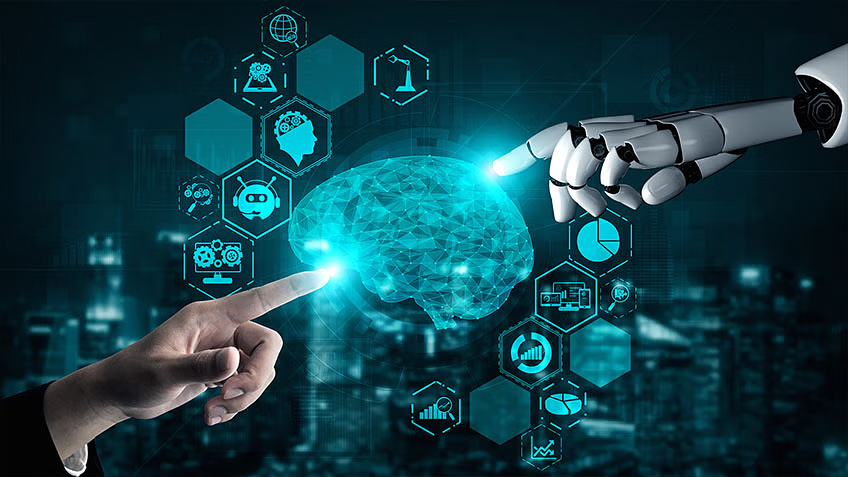Deep learning is an ever-evolving field, pushing boundaries and introducing groundbreaking advancements across numerous sectors. Here’s an exploration of additional areas where deep learning is making significant strides and the emerging trends influencing its future trajectory.
Deep Learning in Financial Services
- Algorithmic Trading:
- Predictive Analytics: AI models analyze historical market data and financial indicators to forecast stock prices and trading opportunities. This enables high-frequency trading strategies and improved investment decisions.
- Risk Management: Deep learning enhances risk management by predicting market volatility and potential losses. AI systems evaluate financial risk factors and develop strategies to mitigate risks.
- Fraud Detection and Prevention:
- Anomaly Detection: AI models identify unusual patterns and behaviors in financial transactions to detect fraudulent activities. This includes analyzing transaction data in real-time to prevent financial fraud.
- Credit Scoring: Deep learning improves credit scoring by analyzing diverse data sources, including transaction history and social behavior. This supports more accurate assessments of creditworthiness.
Deep Learning in Transportation and Logistics
- Smart Logistics:
- Route Optimization: AI models optimize delivery routes by analyzing traffic conditions, weather forecasts, and historical data. This reduces delivery times and fuel consumption.
- Supply Chain Management: Deep learning enhances supply chain management by predicting demand, optimizing inventory levels, and improving supplier relationships.
- Autonomous Transportation:
- Self-Driving Vehicles: AI systems control autonomous vehicles by analyzing data from sensors, cameras, and radar. This includes path planning, obstacle avoidance, and traffic navigation.
- Fleet Management: Deep learning improves fleet management by monitoring vehicle performance, predicting maintenance needs, and optimizing vehicle usage.
Deep Learning in Entertainment and Media
- Content Personalization:
- Recommendation Systems: AI models provide personalized content recommendations on streaming platforms by analyzing user preferences and viewing history. This enhances user engagement and satisfaction.
- Dynamic Content Creation: Deep learning generates dynamic content, such as personalized advertisements and interactive media experiences, based on user behavior and preferences.
- Media Production:
- Scriptwriting and Storytelling: AI assists in scriptwriting and storytelling by analyzing successful narrative structures and generating creative content. This includes producing plotlines, dialogues, and character development.
- Video Editing: Deep learning enhances video editing by automating tasks such as scene detection, object removal, and color correction. This speeds up the editing process and improves video quality.
Deep Learning in Smart Cities
- Urban Planning:
- Traffic Management: AI models analyze traffic patterns to optimize signal timings, reduce congestion, and improve traffic flow in smart cities. This includes real-time adjustments and predictive traffic management.
- Infrastructure Monitoring: Deep learning monitors infrastructure conditions, such as bridges and roads, by analyzing data from sensors and imaging systems. This supports maintenance and safety management.
- Energy Management:
- Smart Grids: AI systems optimize the operation of smart grids by predicting energy demand, managing energy distribution, and integrating renewable energy sources. This enhances grid reliability and efficiency.
- Building Management: Deep learning improves building management by analyzing data on energy usage, occupancy, and environmental conditions. This supports energy efficiency and comfort in smart buildings.
Deep Learning in Legal and Compliance Technology
- Legal Document Automation:
- Contract Generation: AI models automate the generation of legal documents and contracts by analyzing templates and user inputs. This streamlines legal workflows and reduces manual effort.
- Compliance Monitoring: Deep learning enhances compliance monitoring by analyzing regulatory requirements and tracking adherence. This includes identifying potential compliance issues and generating reports.
- Litigation Support:
- Case Prediction: AI models predict the outcomes of legal cases by analyzing historical case data, legal precedents, and judicial opinions. This supports legal professionals in case strategy and decision-making.
- Evidence Analysis: Deep learning assists in analyzing evidence by extracting relevant information from large volumes of documents and data. This improves the efficiency of legal investigations and case preparation.
Deep Learning in Scientific Research
- Scientific Discovery:
- Data Analysis: AI models analyze complex scientific data, such as genomic sequences and experimental results, to uncover new insights and patterns. This accelerates the pace of scientific discovery.
- Simulation and Modeling: Deep learning enhances scientific simulations and modeling by improving the accuracy and efficiency of computational experiments. This includes applications in physics, chemistry, and biology.
- Collaborative Research:
- Knowledge Sharing: AI systems facilitate knowledge sharing and collaboration among researchers by analyzing research publications, identifying trends, and suggesting potential research partners.
- Research Funding: Deep learning supports research funding by analyzing grant applications, evaluating research proposals, and predicting funding outcomes. This improves the allocation of research resources.
Deep Learning in Customer Service and Experience
- Customer Support Automation:
- Virtual Assistants: AI-powered virtual assistants provide automated customer support by handling inquiries, resolving issues, and offering recommendations. This improves customer service efficiency and satisfaction.
- Sentiment Analysis: Deep learning analyzes customer feedback and interactions to gauge sentiment and identify areas for improvement. This supports personalized customer service and engagement strategies.
- Personalized Marketing:
- Targeted Campaigns: AI models create targeted marketing campaigns by analyzing customer data, preferences, and behavior. This enhances the effectiveness of marketing strategies and increases conversion rates.
- Customer Journey Mapping: Deep learning tracks and analyzes customer journeys to identify touchpoints and optimize marketing efforts. This provides insights into customer behavior and preferences.
Future Directions and Innovations
- Neuromorphic Computing:
- Brain-Inspired Models: Research in neuromorphic computing explores brain-inspired AI models that mimic neural processes. This aims to develop more efficient and adaptive AI systems.
- Energy Efficiency: Neuromorphic computing seeks to improve energy efficiency by designing AI hardware that reduces power consumption while maintaining high performance.
- Ethical AI and Regulation:
- AI Ethics Frameworks: Development of ethical AI frameworks addresses issues related to fairness, accountability, and transparency. This includes establishing guidelines and standards for responsible AI development.
- Regulatory Compliance: Ongoing efforts focus on developing regulations and policies to govern the use of AI technologies. This ensures that AI applications adhere to legal and ethical standards.
- Explainable AI (XAI):
- Transparency and Interpretability: Research in explainable AI aims to make AI models more transparent and interpretable. This includes developing methods to explain AI decisions and predictions to users.
- User Trust: Explainable AI enhances user trust by providing clear and understandable explanations of AI system outputs. This supports the adoption and acceptance of AI technologies.
- AI in Human Augmentation:
- Enhanced Capabilities: AI supports human augmentation by enhancing cognitive and physical abilities. This includes applications in assistive technologies, wearable devices, and brain-computer interfaces.
- Health and Well-being: AI-driven human augmentation technologies aim to improve health and well-being by providing personalized support and enhancing daily living.
Conclusion
Deep learning is shaping the future across diverse fields, from finance and transportation to scientific research and customer service. As technology continues to advance, deep learning will unlock new possibilities and address complex challenges.
Staying abreast of emerging trends, addressing ethical considerations, and fostering innovation will be crucial for harnessing the full potential of deep learning and ensuring its positive impact on society.



